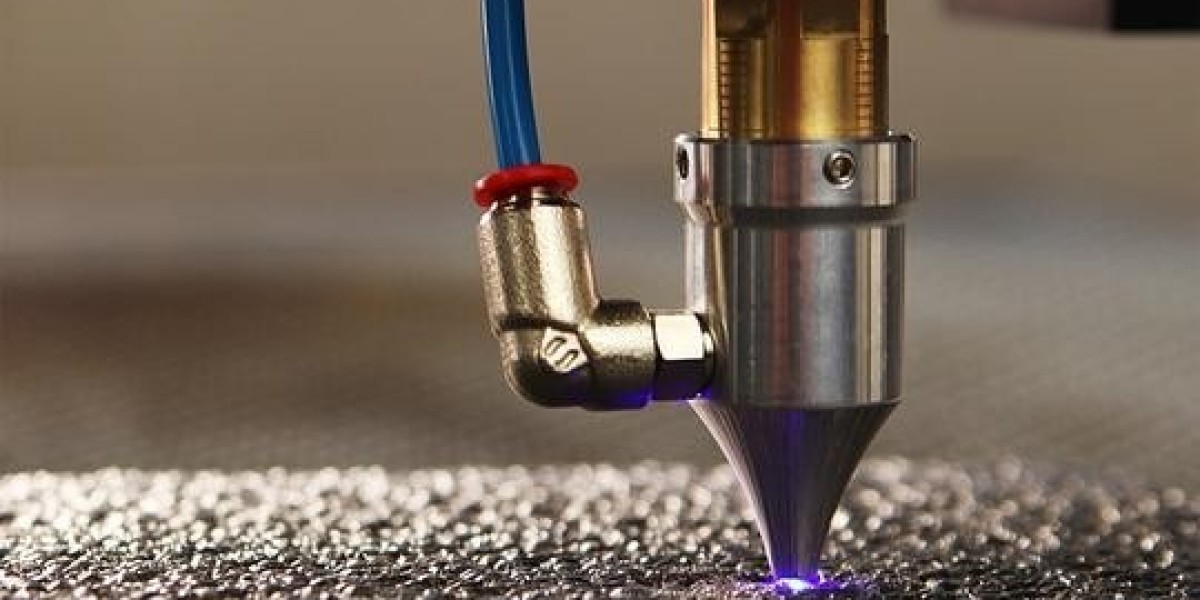In the fast-paced world of industrial advancements, the laser cleaner is rapidly transforming the way companies approach surface cleaning. Laser cleaning technology, which uses high-powered laser beams to remove contaminants from materials, is gaining significant popularity in industries ranging from manufacturing to automotive and restoration. But what makes this innovation stand out? Let’s dive into the key benefits, applications, and the future of laser cleaner technology.
What is a Laser Cleaner?
A laser cleaner is an advanced, eco-friendly cleaning tool that uses laser technology to remove rust, oil, paint, dust, and other contaminants from a variety of surfaces. The process involves high-intensity laser beams that are directed onto the surface of the material. The energy from the laser causes contaminants to vaporize, allowing them to be easily removed without causing any damage to the underlying material.
Unlike traditional cleaning methods, such as abrasive blasting or chemical cleaning, a laser cleaner is a non-contact, non-abrasive solution that does not require harsh chemicals or consumable materials. This not only makes the process more sustainable but also improves safety for workers.
Benefits of Laser Cleaner Technology
Eco-Friendly and Sustainable One of the biggest advantages of laser cleaning is its environmental benefits. Traditional cleaning methods often rely on harmful chemicals and abrasive materials, which can contribute to pollution and waste. Laser cleaning eliminates the need for chemicals, making it a green alternative. It’s also energy-efficient, requiring fewer resources for operation compared to traditional methods.
Cost-Effective in the Long Run Though the initial cost of purchasing a laser cleaner can be high, the long-term savings make it a cost-effective investment. With no consumables like chemicals, abrasives, or water needed, companies can reduce ongoing operational costs. Additionally, the minimal maintenance and long lifespan of laser cleaning equipment add to its overall cost-efficiency.
Precision and Efficiency Laser cleaners offer precision that traditional cleaning methods can’t match. The laser beam is highly focused, allowing for selective cleaning without damaging sensitive materials. Whether it’s delicate machinery, metal components, or delicate artwork, the laser cleaner can be programmed to clean specific areas, ensuring that only the contaminants are removed without affecting the substrate.
Safety and Low Maintenance Safety is always a priority in any industrial environment. Laser cleaners are designed with safety features like protective enclosures, making them safer to operate than some traditional cleaning systems. Additionally, laser cleaning systems require very little maintenance. The absence of chemical handling and abrasive parts means fewer components to replace or repair.
Versatility Across Industries Laser cleaners can be used across various industries, including automotive, aerospace, construction, and restoration. They are ideal for cleaning hard-to-reach areas, such as complex machinery, intricate parts, and rusted surfaces. Restoration projects, including the preservation of historical buildings and monuments, have greatly benefited from laser cleaning, offering a gentle and effective cleaning method.
Applications of Laser Cleaner Technology
Laser cleaning technology has broad applications across multiple industries. Let’s explore a few:
Automotive Industry: Laser cleaners are used for removing paint, rust, and oil from car parts, including engine components and chassis. The precision and speed of laser cleaners make them highly efficient for high-volume production lines.
Aerospace: In the aerospace industry, laser cleaners are crucial for cleaning turbine blades, engines, and other sensitive equipment. The process helps to ensure that these critical components function optimally, reducing the risk of failure.
Restoration and Preservation: For historical monuments, laser cleaning offers a non-invasive way to remove dirt, soot, and other contaminants from surfaces without damaging the integrity of the materials.
Metal Processing and Manufacturing: Laser cleaners are used in metal processing to remove oxides, scale, and rust from metal surfaces, preparing them for further processing or coating.
The Future of Laser Cleaner Technology
As industries continue to seek sustainable and efficient solutions, the future of laser cleaner technology looks promising. The development of more powerful lasers, along with the integration of artificial intelligence and automation, is likely to further enhance the capabilities of these systems. Laser cleaners will likely become more accessible for smaller businesses, and their range of applications will continue to expand across diverse sectors.
Conclusion
Laser cleaning represents the future of surface cleaning—combining precision, sustainability, and efficiency in a way that traditional methods simply can’t match. As industries evolve, embracing innovative and environmentally friendly technologies will be key to staying ahead. laser cleaner are not just a passing trend; they are set to become a cornerstone of industrial maintenance and restoration, making them a valuable asset for any business looking to optimize its operations.









